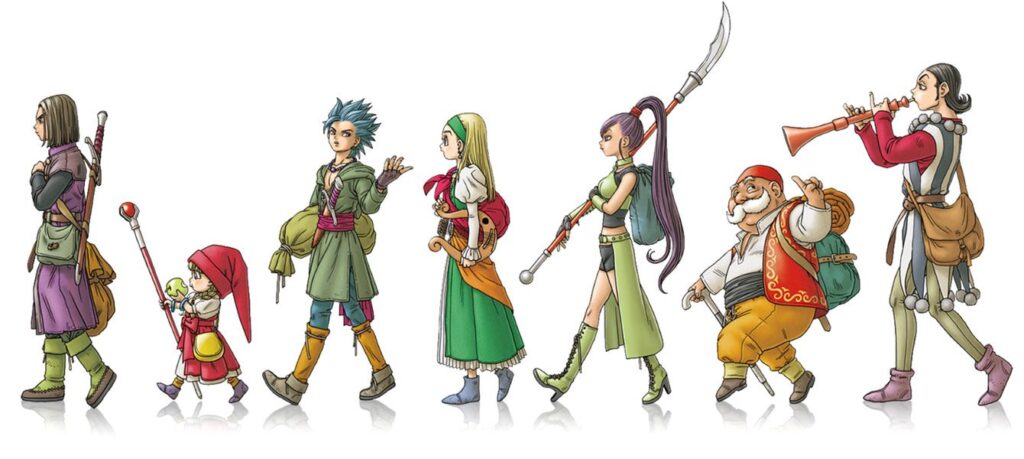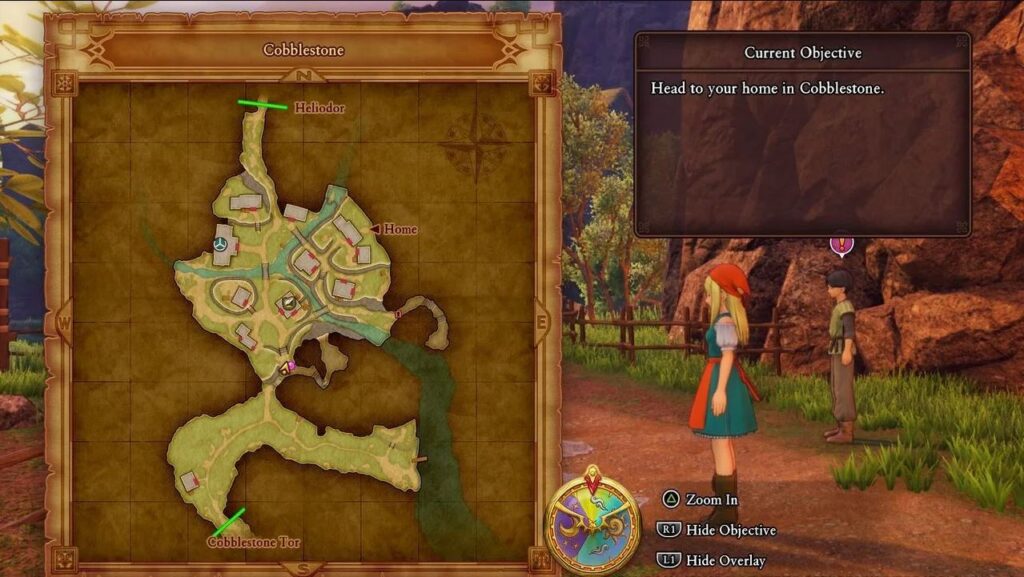Dragon Quest – one of my favorite game series when growing up. Initially, it was the colorful, cel-shaded art that enticed me into the series. But, what kept me there was its engaging storyline, charming characters, and vibrant, Medieval-like towns. Not to mention the weapons, items, and spells that fleshed out a concise and enjoyable combat system. Oh, and all the different types of monsters encountered along the way!

A Story of Accents
One thing the English Dragon Quest games are known for among fans is the huge array of accents that accompany those charming characters. However, if you don’t live in the UK, the chances are you may not recognize them or understand their implications in relation to the storylines. In this blog, I will cover two of my favorite examples… though there are plenty more out there for you to explore!
Yangus from Dragon Quest VIII is my first choice. His character background underwent a slight change. He originally spoke using ‘dockworker’ slang in the original Japanese version. But in the English version, the localization team gave him an inner-city, East London accent – named a ‘cockney accent’ – that, in film, has become synonymous with the crime genre – think Michael Caine (The Italian Job), Bob Hoskins (The Long Good Friday), Danny Dyer (Football Factory, as well as the voice of Kent Paul in GTA: Vice City) and Ray Winstone (Sexy Beast). In addition, the localization team named Yangus’ hometown ‘Pickham’, which was a crime-ridden slum. But did you know this was named after a once-notorious area of London called Peckham? It’s likely the localization team deliberately intended for these little details to reinforce Yangus’ past-life in the story, one of a former bandit.
Additionally, it allowed the team to showcase some of the splendors of cockney slang:
“ ’Old your ‘orses!” (hold your horses) this means “wait just one minute!”
“Yer avin’ a giraffe, intcha?!” this is what is known as ‘cockney rhyming slang’, and it rhymes with “you’re having a laugh” – it’s used to convey the idea that what someone has said isn’t fair, like “you must be joking!”
“Keep your ‘air on” (keep your hair on) which means “there’s no need to panic.”
And finally, “cor blimey!” – which is an exclamation of surprise.

Setting the Tone Through Localization
Similarly, actor Blake Ritson – who speaks with a middle-class, English accent – was chosen to voice Yangus’ travel companion Angelo, the well-spoken, Templar knight. There are many other examples like this.
Moving on to my second choice, we have the locals of Cobblestone Village, from Dragon Quest XI. It’s likely very few people outside the UK will know that these villagers speak with a ‘West Country’ English accent. This is an accent spoken in the more rural parts of western England, and it’s often stereotyped in the UK as ‘rural living’. And this again is reinforced by the name itself: Cobblestone Village – which, among UK gamers, would likely elicit thoughts of small, quintessential, and slow-paced towns in the countryside (what we call ‘villages’). Again, these choices were likely by design, as they help paint a picture of a simple, innocent environment that nestled the hero as he grew up, prior to his setting off into what was a great, dangerous unknown.

Final Thoughts
Dragon Quest is popular in many other English-speaking countries, so I can’t help but wonder if some of these little details went over the heads of many gamers. Indeed, the dominance of UK accents in the series has been quite a divisive subject amongst the fan base. However, it’s thought that they were selected because they hark back to fairy tales and the Medieval era. Interestingly, the original Japanese release of DQVIII didn’t feature any voice acting at all – only onscreen writing.
So, if you’re a non-UK Dragon Quest fan, did you pick up on these details when you played the game? Or do you feel you missed out? I personally felt the games were beautifully recreated into English and I appreciated all the quirky little details… Dragon Quest XII can’t come soon enough!



